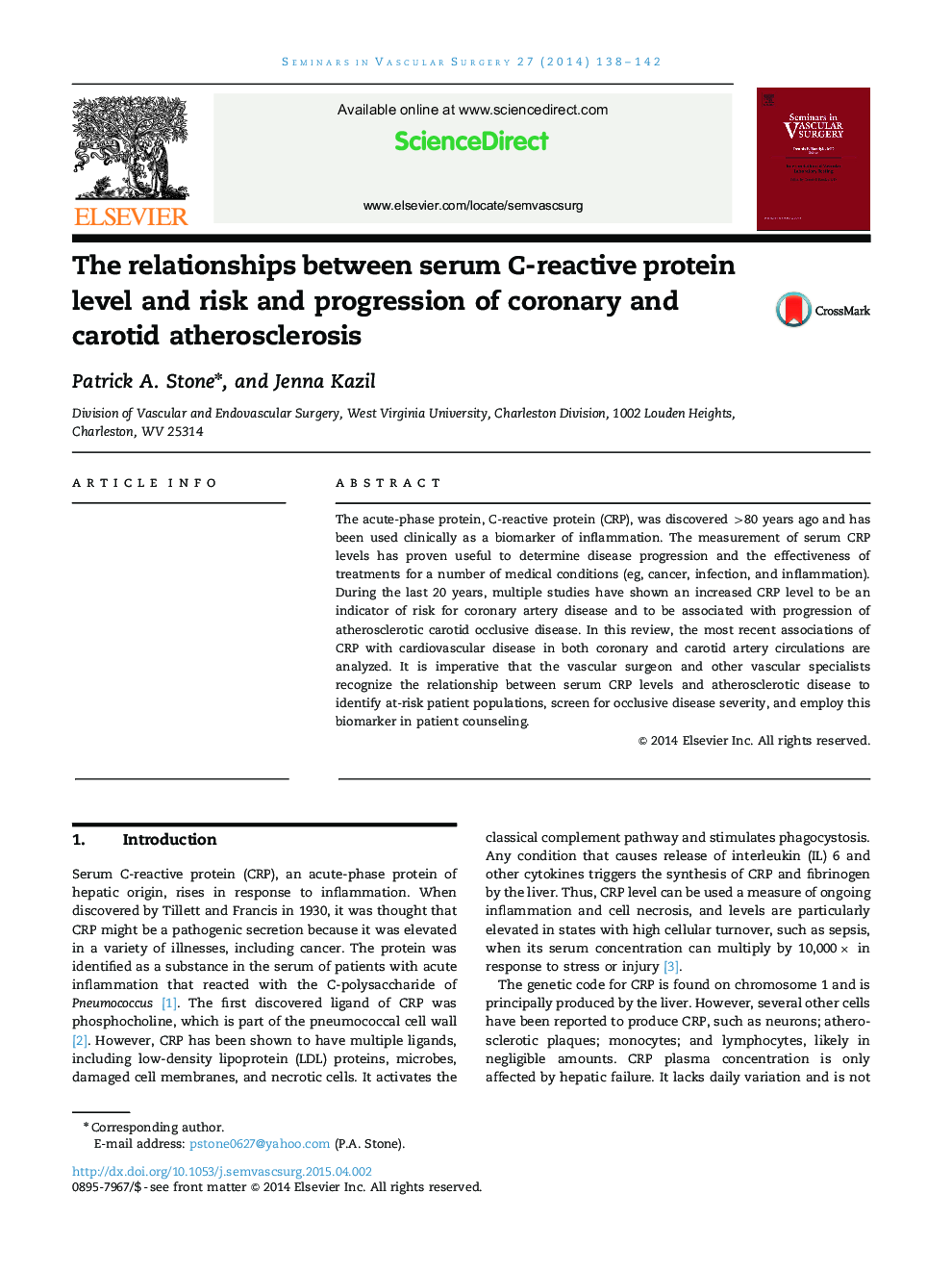| Article ID | Journal | Published Year | Pages | File Type |
|---|---|---|---|---|
| 6000260 | Seminars in Vascular Surgery | 2014 | 5 Pages |
The acute-phase protein, C-reactive protein (CRP), was discovered >80 years ago and has been used clinically as a biomarker of inflammation. The measurement of serum CRP levels has proven useful to determine disease progression and the effectiveness of treatments for a number of medical conditions (eg, cancer, infection, and inflammation). During the last 20 years, multiple studies have shown an increased CRP level to be an indicator of risk for coronary artery disease and to be associated with progression of atherosclerotic carotid occlusive disease. In this review, the most recent associations of CRP with cardiovascular disease in both coronary and carotid artery circulations are analyzed. It is imperative that the vascular surgeon and other vascular specialists recognize the relationship between serum CRP levels and atherosclerotic disease to identify at-risk patient populations, screen for occlusive disease severity, and employ this biomarker in patient counseling.
